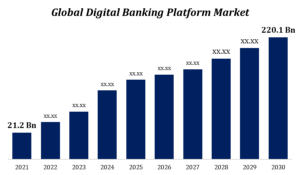Cryptocurrency Adoption: How Businesses Can Benefit from Digital Assets
Cryptocurrency has emerged from the fringes of finance to become a significant player in the global economy. While once viewed as a niche interest for tech enthusiasts, digital assets like Bitcoin, Ethereum, and others have gained mainstream attention. As businesses worldwide grapple with rapid technological advancements, cryptocurrency adoption presents a unique opportunity to innovate and stay ahead of the curve. Here’s how businesses can benefit from integrating digital assets into their operations.
1. Access to a Global Market
Cryptocurrencies operate on a decentralized network, meaning they are not confined by national borders. This allows businesses to engage with a global customer base without the complications of currency exchange rates or the high fees associated with international transactions. By accepting cryptocurrencies, companies can tap into new markets and reach customers who prefer using digital currencies.
2. Lower Transaction Fees
Traditional payment methods, especially those involving cross-border transactions, often come with hefty fees. Cryptocurrencies offer a cost-effective alternative, with lower transaction fees compared to credit cards or bank transfers. For businesses, this means reduced costs in processing payments, which can lead to increased profit margins.
3. Faster Transactions
In the world of business, time is money. Traditional banking systems, especially for international transactions, can take days to process payments. Cryptocurrencies, on the other hand, offer near-instantaneous transactions, regardless of the sender’s or recipient’s location. This speed can improve cash flow, allowing businesses to operate more efficiently and respond to market changes faster.
4. Enhanced Security
Cryptocurrency transactions are secured by blockchain technology, which is renowned for its robust security features. The decentralized nature of blockchain makes it highly resistant to hacking and fraud. For businesses, this means added security in financial transactions, reducing the risk of chargebacks and fraudulent activities that are common with credit card payments.
5. Innovation and Brand Image
Adopting cryptocurrency can position a business as an innovative leader in its industry. By embracing cutting-edge technology, companies can attract tech-savvy customers and investors who are interested in forward-thinking businesses. This can enhance the brand image and open up new opportunities for partnerships and growth.
6. Hedge Against Inflation
In regions with volatile currencies, cryptocurrencies can serve as a hedge against inflation. Since many digital currencies have a limited supply, they are less susceptible to inflationary pressures compared to traditional fiat currencies. By holding a portion of their assets in cryptocurrencies, businesses can protect their wealth from the devaluation of local currencies.
7. New Revenue Streams
Businesses can explore new revenue streams by integrating cryptocurrencies into their operations. For example, companies can accept crypto payments, launch their own tokens, or participate in decentralized finance (DeFi) projects. These new avenues can provide additional income and help businesses diversify their financial portfolio.
8. Improved Transparency
Blockchain technology, the backbone of cryptocurrencies, offers unparalleled transparency. Each transaction is recorded on a public ledger, which is accessible to all network participants. This level of transparency can improve trust between businesses and their customers, as it provides a clear record of all transactions, reducing the potential for disputes.


































